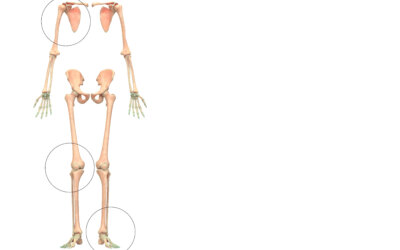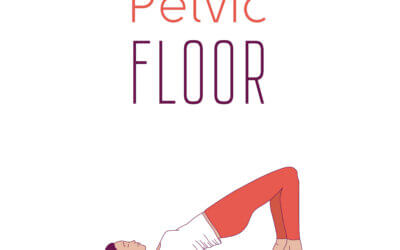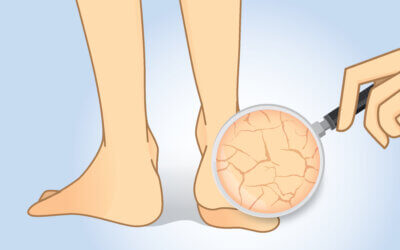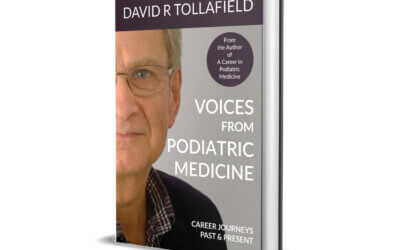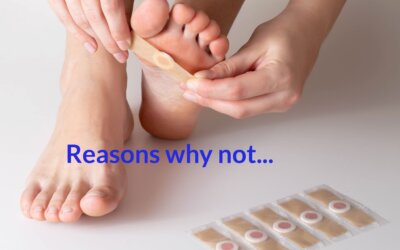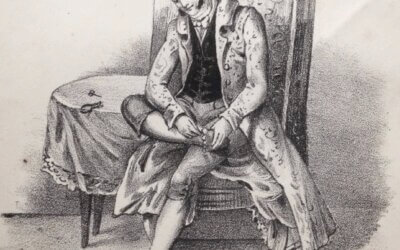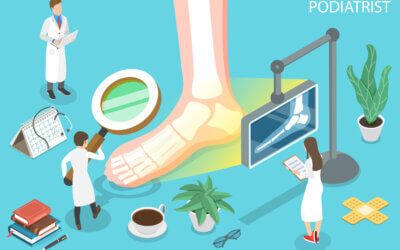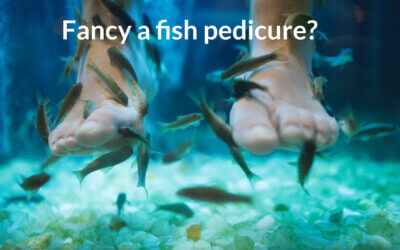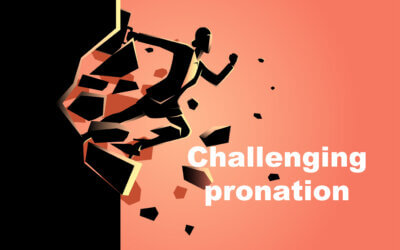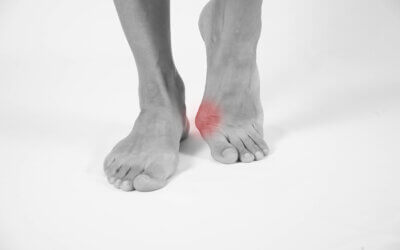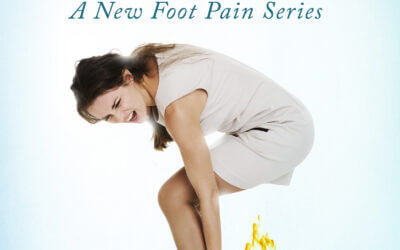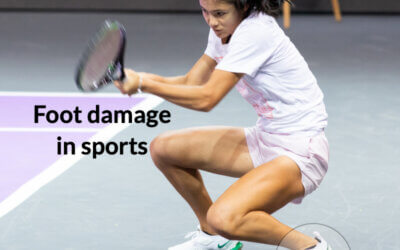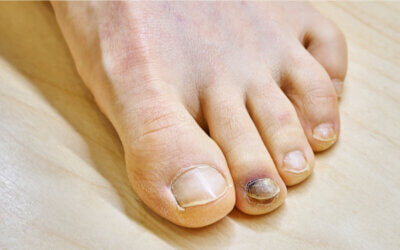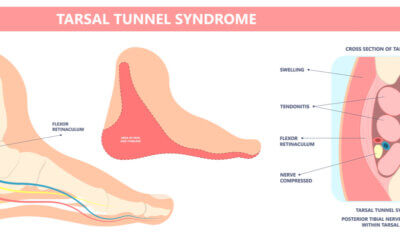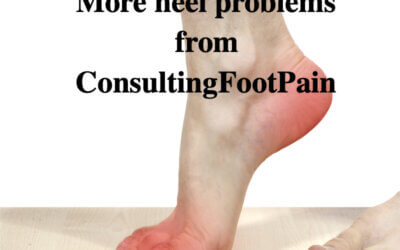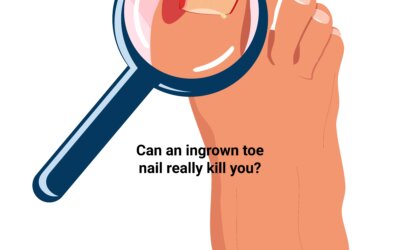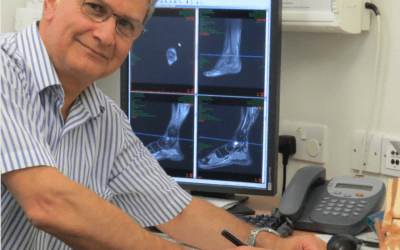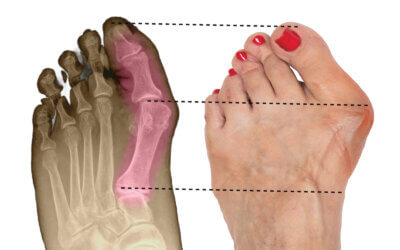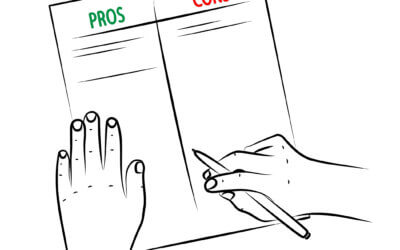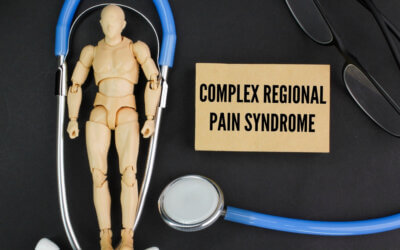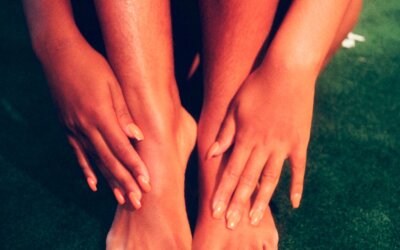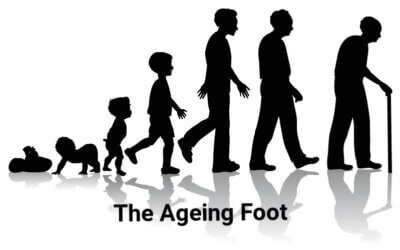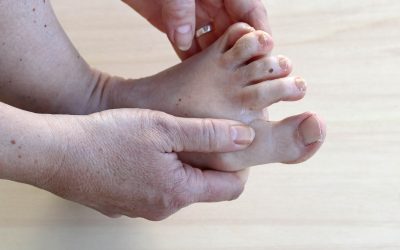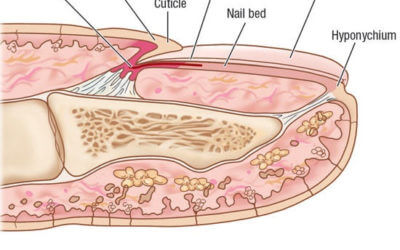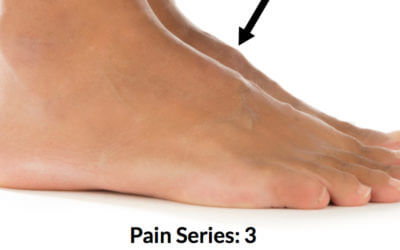Starter Guide for Taping
We can use commercially developed braces and soft forms of splinting to support joints and soft tissue (ligaments and muscle) to limit pain, support function and, above all, provide continuing activity whilst limiting damage. Tapes adhered to the skin have been promoted as an adjective for achieving the same aim. In this article, I will bring some ideas into focus about taping (strapping). While you can undertake these at home, placement and technique are best applied with someone to aid your technique. Focusing on the shoulder, the knee and the ankle provides an idea of how assistance can be used and I have delved into my own experience as a patient.
The Magic of the Pelvic Floor
For the most part we are led to believe that many post natal issues are just ‘normal’ or par for the course of being a woman. Heavy periods, incontinence, painful sex, prolapse and suffering the symptoms of the perimenopause are all part of being a woman aren’t they? Much can be overcome by advice and implementing strategies early on.
Skin Cracks & Fissures in Feet
Skin fissures can affect all genders, but footwear design can be an influencing factor. The shoe that causes the most problems is the mule or a shoe design that has no heel counter or strap. This allows the heel to slip but can cause the skin to bulge over the edge of the heel. This extra tissue distortion causes skin the thicken and then crack. Cold and damp weather can affect the skin as much as overuse of these shoe designs.
Voices from Podiatric Medicine
Insights into the treatment of dancers and Olympic athletes, the nascent world of forensic identification, or the challenge of contributing to the intensive care of patients with Covid 19 during the dark days of the pandemic, all add to a fascinating and enlightening series of vignettes which cover the full scope of modern practice.
The Puppet Toe
Zandra’s toe was not dislocated, but untreated hallux valgus (bunion) deformities can cause this problem. The simplest approach is to straighten both the first and second toe together. If the toe problem arises later, as in Zandra’s case, we can deal with the second toe alone. Evidence is poor, so we must look at the broader picture. Do we know when hammer toes start to be notable in the human population?
Do corn plasters work on corns?
Today we know more about the humble corn than we have done in the past, but for many patients, sharp dissection on a cyclical basis is a quick fix, even if it is not permanent. Unlike a callus, however, your approach must be considered more cautiously. Part 1 covers some of the reasons why everyone needs to be aware that a corn may appear simple but may not be.
Hard skin on our feet?
If your foot is not conventional in shape, and you have bone prominences, the chances are these parts of the foot will be exposed to pressure. You may have to measure the largest foot and fit this, then use an insock (filler) to allow the smaller foot a better fit. Most shoe shops carry these insocks. Unlined shoes stretch better than lined shoes; you can push paper or shoe trees into the toe box to stretch the shoe. Professional stretching is less common than once available. Cobblers may offer a service to do this for you, or you can purchase a shoe stretcher for under £20 online.
The Softer Side of Podiatry
When it comes to skin – callus and corns occur in different degrees and can form extremely painful conditions, from splitting skin (fissures) to deeper ulcers, foreign indwelling damage and cysts. The nail bed harbours many problems and requires skill to navigate fleshy tumours and overgrown blood vessels, causing deformity and distortion known as hypergranulation.
Getting the best foot healthcare
This article focuses on getting the best foot care, but you can consider other relevant health concerns. Following some tips, you can check out some of the 70 key articles to support your quest for your foot problem at the bottom of this article.
The Fish Pedicure – good or bad?
CFP decided to look into this topic further and found some interesting facts. Yes, you can become infected from the doctor fish, as they are sometimes called, although the fish as Garra rufa fish and are found in the Middle East, such as Turkey, Syria, Iraq, Iran, the Far East – Indonesia. The Garra rufa belongs to the carp family. In their natural habitat, their suction helps them stick to rocks so they feed on plankton. In a town called Kangal, it was observed that the resident Garra rufa fed spared normal skin but ate psoriatic plaques. Let’s look at risk and potential reasons for scaremongering. Secondly, we need to feature the Garra Rufa fish.
Selling & Misselling Orthoses
At ConsultingFootPain my colleagues and I try to take the mystique out of foot health science and recognise it is easy to confuse patients. For example, pronation is yet another word based around anatomical movement.
Sports magazines and journals, podiatrists and others use the word pronation all the time. However, do we know or understand the importance of the term, which can be used to confuse? In addition, there is another angle to this word and one that is often attributed to flat feet.
Sun and Skin Warnings
David explains a solar damage on the face, his consultation and treatment during the Covid experience as part of a case history for the readership at consultingfootpain.co.uk
Contact dermatitis and plants
Summer certainly attracts more plants and visitor activity than other seasons. Yet, even as I write this article, I feel itchy. We need to know what to avoid and if we are unfortunate to have a contact rash, we should know what to do. One point about the 10 plants I have picked is that many originate outside the UK while others remain in North America. Given the serious concerns with Japanese Knotweed for example, demonstrates that boundaries do not guarantee that you will come across something that has a kick in its leaf, stem or sap. Skin and respiratory problems arise in some but not all.
A Dying Healthcare System
Consultants split their time between the NHS and the independent sector, although some remain loyal to the NHS alone. Surgeons often make up their salary in this system, taking away an essential NHS resource – experienced professionals. This was the deal that Bevan had to negotiate. It is true that junior consultants have found it harder to follow their senior colleagues into the independent sector but eventually they trim back their hours if they want to work this sector.
Arthritis and the big toe
I confess I am not keen on the word arthritis as it conjures up a disease of the worst kind. So let us use the phrase ‘arthrosis’ because the term means a condition associated with deterioration of any joint, not just the big toe. Severe forms of arthrosis come under a wonderful term – the arthritides (arth-rit-eedees), which sounds like a member of Jason and the Argonauts crew in Greek mythology. Rheumatoid arthritis and gout are two such conditions which are highly destructive. Already you can see Latin and Greek in our language. Medical people love to make everything sound complicated and a bit of old language helps!
Morton’s Nerve Pain
Nerves can recover but often start off because there is local inflammation. The symptoms of what we call neuritis can shoot back up the foot, are often short lived and occur when the foot is compressed initially. Most of the population consult someone between the ages of 40-60. However, there are some who experience the condition as early as 20-30. If caught young then recover can be encouraging. In 1995 Gordon Bennett looked at 115 patients and followed them for 2 years. Thirty-nine percent did well with insoles and footwear alterations. In other words altered their footwear.
Tennis player loses her toenails
Good foot care should be carried out for all sportspeople. They spend huge sums on their sport so they should invest in ensuring the foot is stable and the footgear is correct for their foot shape. Shoes should be fitted with care and the constituent materials should be considered equally important. Consultingfootpain is keen to ensure the public receives good advice so here is some self-help information
Nail care is essential in sports
Having a go yourself sounds a good idea and so there are two approaches to help you. What you can do to prevent the problem from arising and secondly what to do if it happens to you. Let’s start with managing the nail if a problem arises.
Tarsal Tunnel Pain
I want to introduce you to the condition called tarsal tunnel syndrome as a cause of heel pain but with the distinctive quality that the pain burns. The second feature that gives the condition away is that feeling of fullness, a sort of exploding sensation when exercising worsening with standing walking or running. Sometimes this type of problem pain is called referred. This means that the source of pain and location may not match. The pain may be in front of the foot but is related to the structures in the hind part of the foot.
More About Heel Problems
The most common types of heel pain problems arise from general overuse or repetitive heel pad strain but heel pain is complex and if left can resist treatment. In this article, there are four key subjects that you need to know about. The first relates to children while the other conditions are adult related. There are conditions such as rheumatoid arthritis, gout and ankylosing spondylitis that may affect the heel as well as rarer conditions and of course fractures. If the pain does not subside with self-help remedies recommended after several weeks, then seek professional medical help from a podiatrist or medical practitioner.
Why Can’t You Make Ganglions Disappear?
Hitting any tissue is not recommended, and indeed, one should avoid using computer tablets and iPads in place of the Bible – that is, unless you are searching for information such as this site, then hit the keyboard instead.
Can an Ingrown Nail Kill?
You should not experience more pain than needed, as you would expect from dental treatment. If the clinician is unable to provide an anaesthetic, then ask to see someone who can provide this service. Only registered people trained as podiatrists or medically qualified people can provide local anaesthetics. All registered podiatrists have been trained in using local anaesthetics from 1988 onwards. Pain is the giveaway, tenderness to touch
How Long Does Bunion Surgery Last?
Fusion is a safer bet than most alternatives and offers better longevity. Third surgeries seldom come without loss of function. More surgery involves deeper tissue scarring, and even then, a joint-sparing operation could lead to limited joint movement. Minimal incisional surgery (MIS) appeals to many for obvious reasons, but the follow-up is not as well presented as other surgeries and is limited to specific criteria. MIS is available and has advantages. New screw systems allow surgical placement through keyholes under X-ray-guided control.
A Quick Guide to Skin Biopsy
This article will describe the main types of sampling skin and include:
Shave
Punch
Excisional
Please note that some of the hyperlinked videos shown are graphic and do not show the foot as specific examples.
New Bunion Guide for Patients
This new edition is without doubt an extensive tour de force of all thing’s bunion.
David Tollafield wisely teamed up with Dr Tim Kilmartin bringing together two experts with 60 years’ experience of caring for patients and fixing bunions. It’s fair to say few, if any, will have contributed more to the development of podiatric surgery and bunion correction in the UK. And what a result, this book leaves no stone unturned in helping patients understand what a bunion is, how to manage the condition themselves before delving into the surgical options, surgical risks and complications.
The Negative Benefits of Exercise
Part of the tale clarifies the importance of proper diagnosis in directing correct treatment. But how many patients are fobbed off? NHS versus the independent sector springs to mind; both have their value and benefits. Who do you consult?
For the most part, it would be the GP. If it were purely medical, that would be my route, but because I was a lower limb MSK specialist, I knew my way around the UK healthcare system better than most. I am over a year on today, and my shoulder is 90+% better, and the treatment was excellent.
Fiction to Aid Real-Life Conditions
Consider the common problem of repetitive wrist strain. Anna goes to her doctor, who is an okay man but too laid back compared to the GP who dealt with my patient when I first experienced the condition. The doctor decided the actual patient, who was fourteen, was mad and all in her head, so he sent her to a psychiatrist. In David’s latest book—Fatal Contracts, we are dealing with consent—under his pen name R.C.Blyth, he uses fiction to drive the narrative and inform people about a little known condition still very much alive.
Living With Someone Who Has Hearing Loss
The national institute provides a guide, but both parties have to agree with all guides. It might be worth looking at the recommendations and discussing the real outcome. The recommendations are sensible but may not always be ideal. We must work to improve communication; there is only one solution—patience!
Midfoot Pain Mysteries
Alternatives to steroids include sodium hyaluronate as Ostenil, which has some promise in some patients. Sodium hyaluronate is found in normal synovial fluid, which bathes joint surfaces and provides some nutrient service.
The Ageing Foot
We are made from interactive organs and a skeleton combined with a blood and nerve supply controlled by the brain. There are no anatomical parts which fail to display a lack of weakening. Some do better than others. Sitting in a place from which to observe our fellow man, we see all types of movement. Children running around with a complete lack of pain or concern for weakened muscles slowing pace, lack of breath or poor reflexes. The foot is an organ of the body as it comes as a complete package controlled but all the above organs. However, it is a functional part of the anatomy, which means it moves, has to take load and reflects medical diseases.
No Results Found
The page you requested could not be found. Try refining your search, or use the navigation above to locate the post.
Dry Skin in the Foot Associated with Cancer Treatment
Routine podiatry will help to reduce fissures and callus through debridement (finely skilled scalpel reduction of dead skin) and leave healthy pain free skin. Frequent use of ointments to rehydrate the skin is recommended
Nail Toxicity after Cancer Treatment
Here are three types of conditions that can affect the nail: Onycholysis – separation of the nail. Involution – the nail starts to excessively curl creating a pinching effect of the skin at the sides and nails coupled with a weakened immunity, it allow opportunistic fungal infections to take hold.
Foot bump on top of the foot
Information about the condition of foot bump also known as tarsal boss can be confusing and patients want to know what they can do for themselves without a hard sell. Here are a few ideas together with a realistic view about what the internet says about the condition.
No Results Found
The page you requested could not be found. Try refining your search, or use the navigation above to locate the post.
